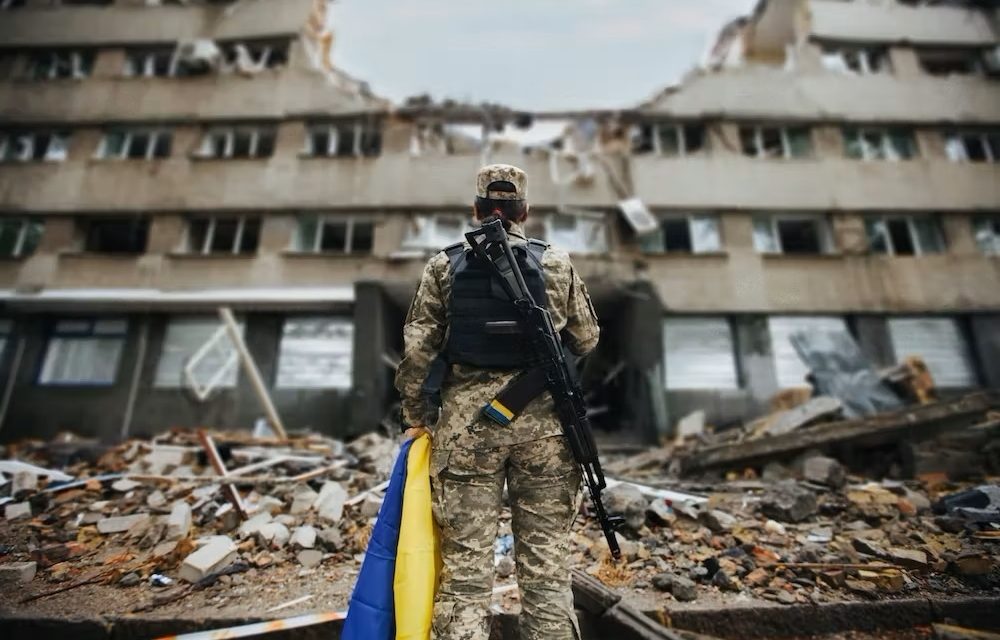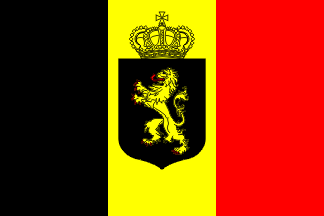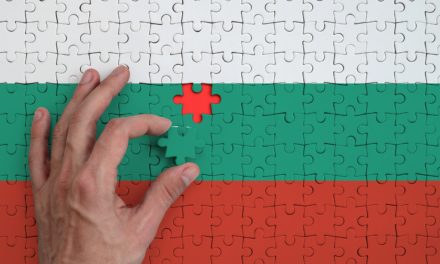These agreements were negotiated during the 2014 Donbass war. It is an agreement that was signed on 5 September 2014 by representatives of Ukraine, Russia, the self-proclaimed Donetsk and Lugansk People’s Republics, and the Organization for Security and Cooperation in Europe (OSCE). Its aim is to end the war in Donbass, which started in eastern Ukraine in April 2014 after the end of the Russian-Ukrainian war in February 2014.
There are in fact two Minsk agreements. A memorandum was signed in September 2014, followed by a second agreement in February 2015, both during a pause in the fighting. This second agreement serves as a practical implementation of the memorandum. It outlines very specific actions to be taken together on four major issues in the Donetsk and Luhansk regions (nothing about Crimea).
An economic track that specifically addresses the financial and economic links between the Donetsk and Luhansk regions and the rest of Ukraine.
A human track that addresses the issue of prisoner exchanges and humanitarian aid.
The third – and most important – track is the security track, which calls for a ceasefire, rules prohibiting the use of heavy weapons, the withdrawal of foreign fighters and the sending of an OSCE mission to monitor the implementation of these measures.
Finally, the last part, the political content, consisted of four main points: an amnesty law to be adopted by Ukraine, which provided for the amnesty of all combatants except those who had committed particularly serious crimes; a constitutional amendment imposing decentralization and considering the particularities of the Donetsk and Luhansk regions; and a law specifically imposing on Ukraine to regain control over its border with Russia.
On the other hand, contrary to occasional statements, the Minsk agreements do not provide for a “free trade agreement” between Ukraine and Russia. The Minsk agreements do not provide for a referendum on self-determination. It is true that there has been decentralization and municipal elections in the two regions, but nothing more.
When did these agreements become significant?
They served as a basis between 2014 and 2022. After February 2015, there was a noticeable decrease in the level of violence in the fighting, which had previously reached an extremely high level of intensity resulting in many civilian casualties.
Although the agreements were never fully respected and there was never a complete cessation of hostilities, the signing temporarily froze the conflict. This led to a significant decrease in casualties. For example, while the United Nations reported over 15,000 war casualties, the vast majority of these were people who died before the peace treaties were signed.
To what extent have these agreements been implemented? And who is responsible?
Ukraine quickly started preparing the texts and submitting them to the legislature. The law governing the Donetsk and Luhansk regions was approved. However, violent demonstrations and deaths occurred around the legislature during the discussion of the constitutional amendment. The Ukrainian side has made very little progress since then. However, work on the implementation of the political part of the agreements has continued, notably within the framework of the “Normandy” structure. The four-nation diplomatic meeting in the Normandy format was used during the war in Donbass. It brings together the following four nations: Germany, France, Russia and the Donetsk and Lugansk oblasts (the fighters).
After his election, President Zelensky declared his intention to implement the Minsk agreements in full, and Ukraine made new proposals without any problems. The Russians refused to put the main responsibility for their failure on the Ukrainian people because of the failure to adopt the legislation required by the Minsk agreements. But the security part of the agreements was not fully implemented. There has never been a full cessation of hostilities; only the withdrawal of heavy weapons or foreign fighters has been effective. And Russia has constantly maintained the myth that the real authorities in Donetsk and Luhansk are responsible for implementing this part and that Moscow is not involved.
Until February 2022, Russia’s objective was to present this conflict as internal to Ukraine and to blame the authorities in Kiev for alleged discrimination against the eastern Russian minorities. To achieve some sort of Ukrainian federation, Moscow sought to ensure that the Ukrainian authorities could negotiate on an equal footing with the authorities in Donetsk and Luhansk. This would have deprived these two regions, and by extension Moscow, of the right to observe Ukrainian politics. As a result, neither of the two key elements of the Minsk agreements were implemented. In the end, it can be written that both sides bear collective responsibility for the failure of the Minsk agreements.
Was it Russia that stopped all implementation plans?
Yes, the Russians made a logical change in February 2022. The independence of the Donetsk and Luhansk republics will be recognized by Moscow on 21 July of that year. From that moment on, the Minsk agreements can be considered null and void, or unenforceable, as their aim was to reintegrate these regions into Ukraine. The Minsk agreements have clearly been abandoned by the Russians. The Russian authorities fully recognize this but blame Ukraine for deliberately dragging its feet and procrastinating in implementing the content of the agreements.
Is it possible to return to the Minsk agreements?
No, it is no longer possible to return to the original agreements. Especially since the Russians announced their annexation of four Ukrainian regions. The Minsk agreements are part of history, but they would not be the basis for new negotiations today.
François Hollande replied in the affirmative when asked whether the Minsk negotiations were intended to stop Russian advances in Ukraine, saying: “Yes, Angela Merkel is right about that. For a while, the Minsk agreements stopped the Russian attack. It was crucial to understand how the West will use this defence against future Russian aggression.
Strangely, François Hollande, who believes that a political solution is necessary for peace in Ukraine, ends his argument by saying that the Minsk agreements “can be revived to establish a legal framework already accepted by all parties.”
However, Vladimir Putin, Russia’s president, has already reacted strongly to Angela Merkel’s admission on 9 December. The Russian commander publicly questioned: “Trust is almost non-existent, but after such statements, a question of trust arises: how to negotiate, on what, and if it is possible to negotiate with someone, what are the guarantees?
“I was hoping that the other people involved in this process were sincere with us. It seems that they also fooled us. The aim was just to fortify Ukraine with weapons while preparing it for hostilities,” he continued. Secondly, according to Vladimir Putin, Moscow should have started its military operation in Ukraine earlier in the light of these new factors, underlining how the Russian Federation hopes to be able to resolve the conflict in the Donbass through the Minsk agreements.






